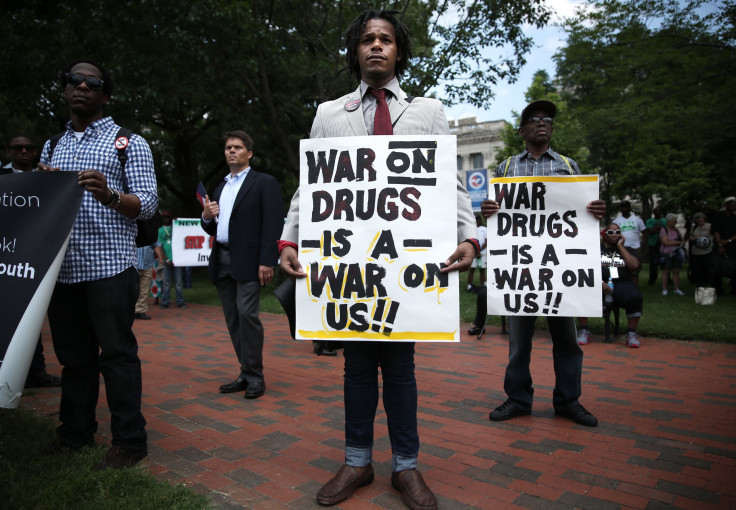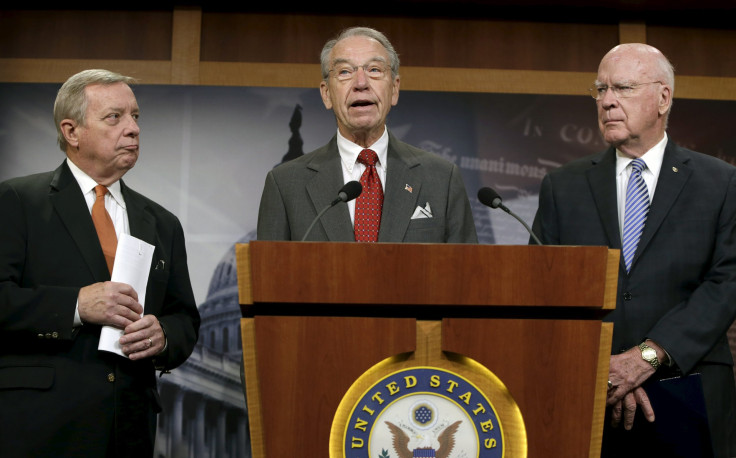US Justice Reform: As States Take Lead, Capitol Hill Dithers On Reforms Of Nation’s Sentencing Guidelines

An increasingly large consensus has indicated the U.S. criminal justice system is in dire need of reform, such as by lowering mandatory minimum sentences that do either little or nothing to dissuade criminal behavior.
But as American lawmakers hem and haw over federal reform efforts, at least in part because of the billions of dollars in revenue generated by the private business of incarceration, almost every state in the union has been moving ahead to cut its costly prison population down to size.
A new report by the Vera Institute of Justice, a nonprofit research and policy organization based in New York, found that 46 states adopted at least one measure aimed at steering people away from entering their prison systems, focusing on social re-entry for those exiting those systems or other measures with the goal of cutting the $80 billion spent annually on taking care of the country’s 6.9 million incarcerated or supervised Americans, including the 2.2 million of them who are locked up.
Among these states are New Jersey, where judges now have more power to release low-risk defendants; Hawaii, which has funded programs to ensure children of incarcerated parents don’t lose contact with them; and Colorado and Nebraska, where long-term solitary confinement has been banned. Other states have lowered sentencing standards for drug-related offenses or created housing and jobs programs aimed at preventing repeat offenders.
“In Congress, however, some recalcitrant lawmakers still cling to outdated or incorrect beliefs about crime and punishment in America,” the New York Times said in an editorial Monday. “They need to pay close attention to the ingenuity and the record of the states.”
It appears federal legislators are beginning to take notice. The Sentencing Reform and Corrections Act of 2015 recently garnered more support from Republicans in Congress. In late April, Sens. Thad Cochran of Mississippi, Steve Daines of Montana and Mark Kirk of Illinois, as well as Rep. Dan Sullivan of Arkansas all said they would back the bill. The measure would revise federal guidelines by retroactively applying measures that would either end or shorten sentences, reducing mandatory sentences and allowing inmates to earn credit for time spent completing rehabilitation programs.

About one in 10 inmates is serving time in a federal prison, so clearly the states are bearing the heaviest burden in dealing with the country’s outsize prison population.
Among the factors slowing down reforms at the federal level are lawmakers’ fears they’ll be perceived as soft on crime and money.
While incarcerating Americans costs more than educating them, the practice is also good for business. That’s why two of the country’s largest publicly traded private correctional facility operators have spent handsomely in recent years to ensure their interests are protected by legislators.
The nation’s largest private corrections company, Corrections Corp. of America in Nashville, Tennessee, has contributed $1.04 million to lawmakers (mostly Republicans) since 2010, according to the Center for Responsive Politics. And the GEO Group in Boca Raton, Florida, has donated more than $100,000 to lawmakers (again mostly Republicans) during the 2016 election cycle.
Both companies have cited the need to keep beds occupied and maintain government contracts as integral to their growth plans.
“A decrease in [prisoner] occupancy levels could cause a decrease in revenues and profitability,” the GEO Group said in the risk disclosure statement in its latest annual report.
Both Corrections Corp. of America and the GEO Group also have noted they rely on government contracts and pointed out their businesses could be adversely affected in the event lawmakers pass measures that put these contracts at risk.
© Copyright IBTimes 2024. All rights reserved.






















